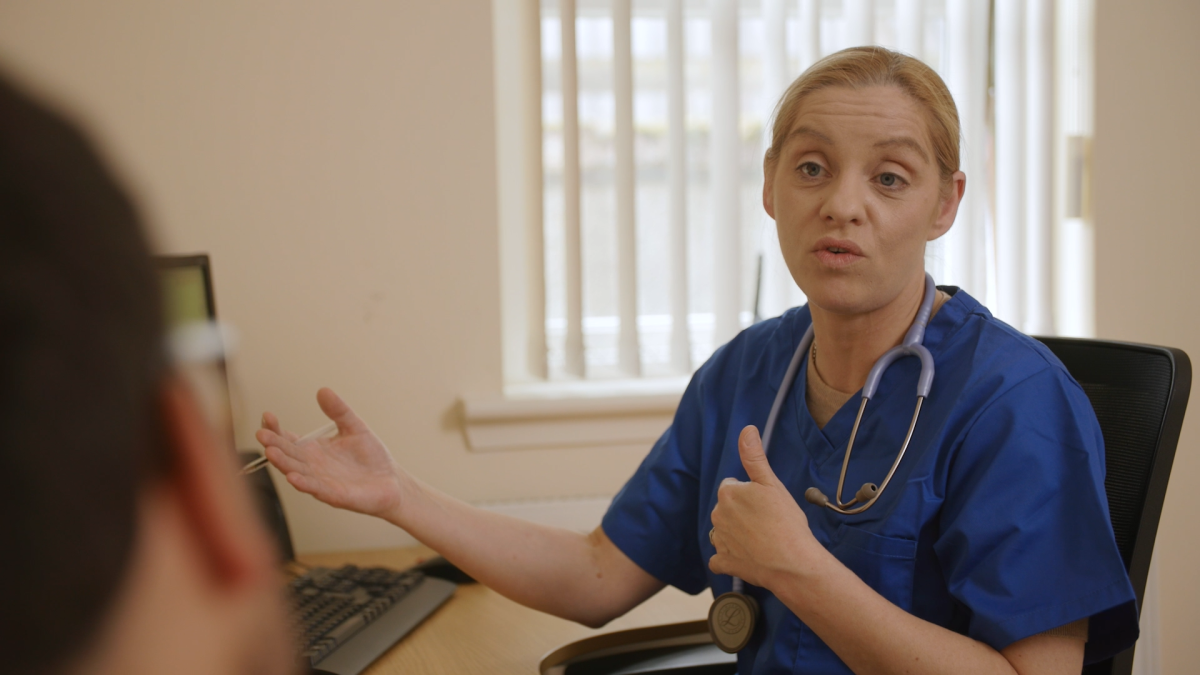Recent research highlighted by the BBC indicates that consuming 35 units of alcohol weekly for five years or more can lead to alcohol-related brain damage (ARBD), a condition affecting cognitive functions like memory and impulse control. Experts warn that thousands may unknowingly suffer from ARBD due to stigma and misdiagnosis, often mistaking it for conditions like early-onset dementia.
How Does Alcohol Damage the Brain?
Drinking high levels of alcohol on a long-term basis can have harmful effects on the brain. People who drink heavily are more likely to develop alcohol-related brain damage, Korsakoff Syndrome or alcoholic dementia.
Research studies vary but some have found estimate that 35% of heavy drinkers have alcohol-related brain damage.1
There are several ways in which alcohol misuse can affect the brain:
1. Regular Heavy Alcohol Intake Causes Thiamine Deficiency
Thiamine plays a crucial role in keeping our brain cells working normally. Thiamine deficiency can lead to serious brain disorders.2
There are three main reasons why alcohol misuse causes thiamine deficiency:
- Alcohol addiction can lead to a poorer diet. People with alcoholism often consume less thiamine in their food
- Alcohol damages the lining of the gut, reducing how much thiamine the gut can absorb from food
- Alcohol affects how our cells process thiamine 3
2. Ethanol Is Toxic to Brain Cells
Scientists believe that alcohol can have toxic effects on brain cells. Studies have shown that giving animals alcohol can structurally change their brains and affect their cognitive function.4
3. Repeat Alcohol Intoxication Increases the Risk of Head Injuries
Alcohol increases confidence and impairs your ability to consider the consequences of decisions. This can lead to you behaving in ways that put you at risk of injury. On top of this, alcohol causes difficulties with vision and coordination. Combined, these factors greatly increase your risk of a head injury and repeated head injuries can lead to brain damage.
Alcohol-Related Brain Damage
Sustained alcohol misuse can lead to Alcohol-Related Brain Damage (ARBD).
Alcohol-Related Brain Damage is a broad umbrella term. It refers to any impairment in brain function caused by long-term heavy drinking. Two common types of alcohol-related brain damage are Wernicke-Korsakoff Syndrome and Alcohol-Induced Dementia.
What is Wernicke-Korsakoff Syndrome?
Wernicke-Korsakoff Syndrome (WKS) is a serious brain disorder most commonly caused by a severe deficiency of thiamine (vitamin B1), often due to chronic alcohol misuse. It actually refers to two related conditions: Wernicke Encephalopathy and Korsakoff Syndrome.
What are the stages of Wernicke-Korsakoff Syndrome?
Wernicke-Korsakoff Syndrome typically occurs in two stages:
1. Wernicke Encephalopathy
Wernicke Encephalopathy is an acute and recersible brain condition that develops as a result of severe thiamine (vitamin B1) deficiency in alcohol misuse. It is a medical emergency and presents with symptoms such as confusion, unsteady gait, and abnormal eye movements.
Symptoms of Wernicke Encephalopathy
People with Wernicke Encephalopathy may experience the following symptoms:
- Loss of appetite
- Nausea or vomiting
- Feeling tired or weak
- Changes in vision
- Drooping eyelids
- Unstable gait
2. Korsakoff Syndrome
If Wernicke’s Encephalopathy is not treated promptly, it can lead to Korsakoff’s Syndrome, a chronic memory disorder marked by severe short-term memory loss, difficulty forming new memories, and confabulation (making up stories to fill in memory gaps).
Symptoms of Korsakoff Syndrome
Memory loss
The most profound feature of Korsakoff Syndrome is memory impairment. People with Korsakoff Syndrome usually experience anterograde amnesia. Anterograde amnesia means that someone has difficulty forming and accessing new memories. People with anterograde amnesia will find it harder to learn new skills or information. Because they struggle with their memory, they may also struggle with disorientation.
Another type of memory problem seen in Korsakoff Syndrome is retrograde amnesia. Retrograde amnesia means difficulty remembering events that occurred before the condition developed.
Confabulation
Another symptom of Korsakoff Syndrome is confabulation. People with Korsakoff Syndrome may unintentionally create false memories. They are not lying, they genuinely believe the memory is real.
Attention and concentration difficulties
While general intelligence may be preserved, many people struggle with focus and mental flexibility.
Apathy or lack of initiative
People with Korsakoff Syndrome may appear indifferent, emotionally flat, or lack motivation, which can be mistaken for depression.
Treatment of Wernicke-Korsakoff
Wernicke-Korsakoff requires immediate emergency treatment. People with Wernicke Encephalopathy need urgent intravenous administration of thiamine. This means they need to have thiamine delivered into their bloodstream via a drip.
After the initial treatment, people with Wernicke-Korsakoff require nutritional support and help to stop drinking. If someone continues to drink they are at risk of further damaging their brain.
Unfortunately, the diagnosis of Wernicke-Korsakoff is frequently missed.
Alcoholic cerebellar damage. Some heavy drinkers notice that their balance deteriorates, not just when they have been drinking but it persists after stopping drinking. This is due to specific damage to the cerebellum.

What is Alcohol-Induced Dementia?
Dementia is a medical term used to describe a group of symptoms that occur in declining brain function.
Is Heavy Alcohol Use Linked to Dementia?
Heavy alcohol use can cause a type of dementia known as alcohol-induced dementia. You may also see it referred to as alcoholic dementia or alcohol-induced dementia. Research suggests that alcohol-related dementia accounts for 10-24% of all cases of dementia.5
Research has also shown that heavy alcohol use increases your risk of other types of dementia. The risk is especially increased for early-onset dementia.6
Symptoms of Alcohol-Induced Dementia
Dementia can cause changes to memory, thoughts, behaviour, speech, and mood.
People with alcohol-related dementia may experience the following symptoms:
- Memory problems
- Difficulty focusing or paying attention
- Difficulty solving problems or making plans
- Changes in personality
Is Alcoholic Dementia Reversible?
If detected and treated early, it is possible to reverse the effects of alcohol-related dementia.
Is Korsakoff Syndrome different from Alcohol-Related Dementia?
Alcohol-related dementia is a term that health professionals use in different ways.5
Some health professionals use “alcohol-related dementia” to refer to the syndrome of dementia caused by the toxic effects of alcohol on the brain. Others use the term to refer to any alcohol-related brain damage that causes memory problems and dementia-like symptoms including Wernicke-Korsakoff.
The specifics of it don’t matter too much
The important thing to understand is that alcohol can cause brain damage which can have profound effects on memory and cognitive function. Throughout this blog, we’ll use the term Alcohol-Related Brain Damage to refer to any impairment in memory and cognitive function caused by chronic excessive alcohol intake.
How Do You Know if You Have Alcohol-Related Brain Damage?
The symptoms of ARBD vary depending on the cause. Some signs you may be struggling with Alcohol-Related Brain Damage are:
- You find yourself struggling with basic cognitive tasks
- You find yourself getting lost or disorientated
- Your memory is worse than it used to be
- You struggle with coordination and muscle control
- You have difficulty concentrating
- You find it hard to solve problems or make plans
- You notice a difference in your mood
We are Here to Help you Today
Don’t Suffer Alone. Our Friendly Team Are Waiting to Help You Start Your Recovery Journey.
How is Alcohol-Related Brain Damage diagnosed?
To diagnose Alcohol-Related Brain Damage your doctor may carry out the following steps:
Take a history
Your doctor will ask questions to gain an understanding of your symptoms and what might be causing them. With your permission, they might speak to a family member or friend to get more information about your behaviour.
Ask you to complete a cognitive test
Your doctor might need you to carry out a test that assesses your cognitive function. These tests involve completing simple mental tasks and answering questions.
Examine you
Your doctor might carry out a general examination to look for causes of your symptoms. They may also look for signs of other alcohol-related problems such as liver disease.
Carry out medical tests
Your doctor may wish to carry out tests to look for the cause of your symptoms. Depending on your symptoms they may do blood tests and a scan of your brain.
How Is Alcohol-Related Brain Damage Treated?
Treatment of ARBD depends on the cause. People with ARBD may need the following:
- Support and information on improving nutrition
- Help to safely withdraw from alcohol
- Therapy or other internvetion to help sustain complete abstinence from alcohol
- Education and support on their symptoms
Your doctor will advise you on the best treatment for you.
How Does Alcohol-Related Brain Damage Affect Your Life?
ARBD can seriously affect people’s quality of life. Problems with memory and orientation can make it difficult to go out independently. Difficulties with focus and concentration can make it difficult to do the activities you enjoy.
In some cases, people with ARBD may have difficulty keeping themselves safe and making good decisions. In these cases, people with ARBD may need extra support such as:
- Having household aids installed
- Moving into supported accommodation
- Having a legal guardian put in place to help make decisions over finances and wellbeing
- Memory training
- Aids to remembering
Why Is Alcohol-Related Brain Damage Often Missed?
The stigma surrounding addiction can make it hard for people to access help.
The lack of clear diagnostic criteria makes it hard for health professionals to accurately diagnose ARBD. Often it may be misdiagnosed as mental health problems or other forms of dementia.
Can you recover from Alcohol-Related Brain Damage?
Yes, you can. Alcohol-Related Brain Damage doesn’t automatically worsen. With the right treatment, and stopping alcohol, it is possible to recover from ARBD. According to Alcohol Change, the recovery rates for ARBD are as follows:
- 25% will make a complete recovery
- 25% will make a significant recovery
- 25% will make a slight recovery

Download Our Brochure
How Can I Get Help for Alcohol-Related Brain Damage?
If you’re worried that you or a loved one might have ARBD, you should speak to your GP. The sooner you can get treatment, the better your outcome will be.
If you’re looking for support with overcoming alcohol addiction following a diagnosis of ARBD Castle Craig can offer support. Get in touch today for a free consultation with our experienced team.
-
Related Pages on Alcohol Addiction
-
Reference
- Royal College of Psychiatrists. Alcohol And Brain Damage In Adults With Reference To High-Risk Groups. London: Royal College of Psychiatrists; 2014:22.
- Martin PR, Singleton CK, Hiller-Sturmhöfel S. The role of thiamine deficiency in alcoholic brain disease. Alcohol Res Health. 2003;27(2):134-142.
- Langlais PJ. Alcohol-Related Thiamine Deficiency: Impact on Cognitive and Memory Functioning. Alcohol Health Res World. 1995;19(2):113-121.
- Brust JC. Ethanol and cognition: indirect effects, neurotoxicity and neuroprotection: a review. Int J Environ Res Public Health. 2010;7(4):1540-1557. doi:10.3390/ijerph7041540
- Ridley NJ, Draper B, Withall A. Alcohol-related dementia: an update of the evidence. Alzheimers Res Ther. 2013;5(1):3. Published 2013 Jan 25. doi:10.1186/alzrt157
- Schwarzinger M, Pollock BG, Hasan OSM, Dufouil C, Rehm J; QalyDays Study Group. Contribution of alcohol use disorders to the burden of dementia in France 2008-13: a nationwide retrospective cohort study. Lancet Public Health. 2018;3(3):e124-e132. doi:10.1016/S2468-2667(18)30022-7
- Alcohol Change UK. n.d. Alcohol-related brain damage – diagnosis and treatment | Alcohol Change UK.



